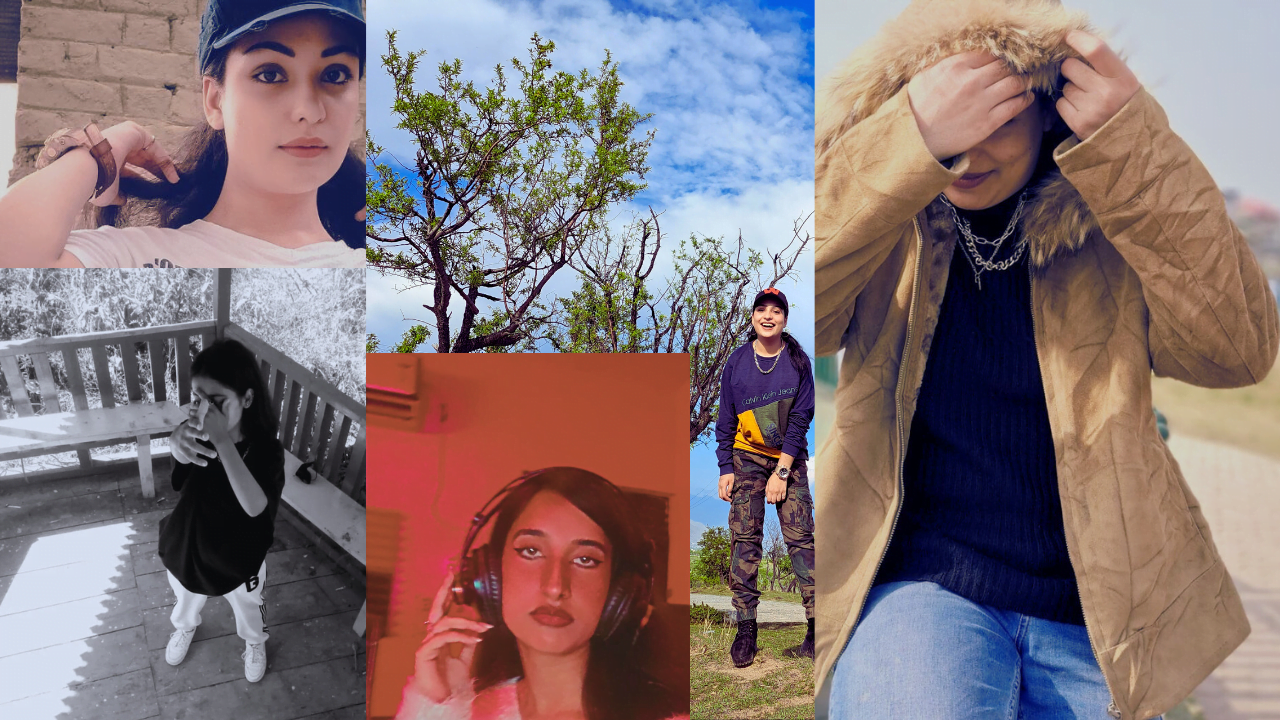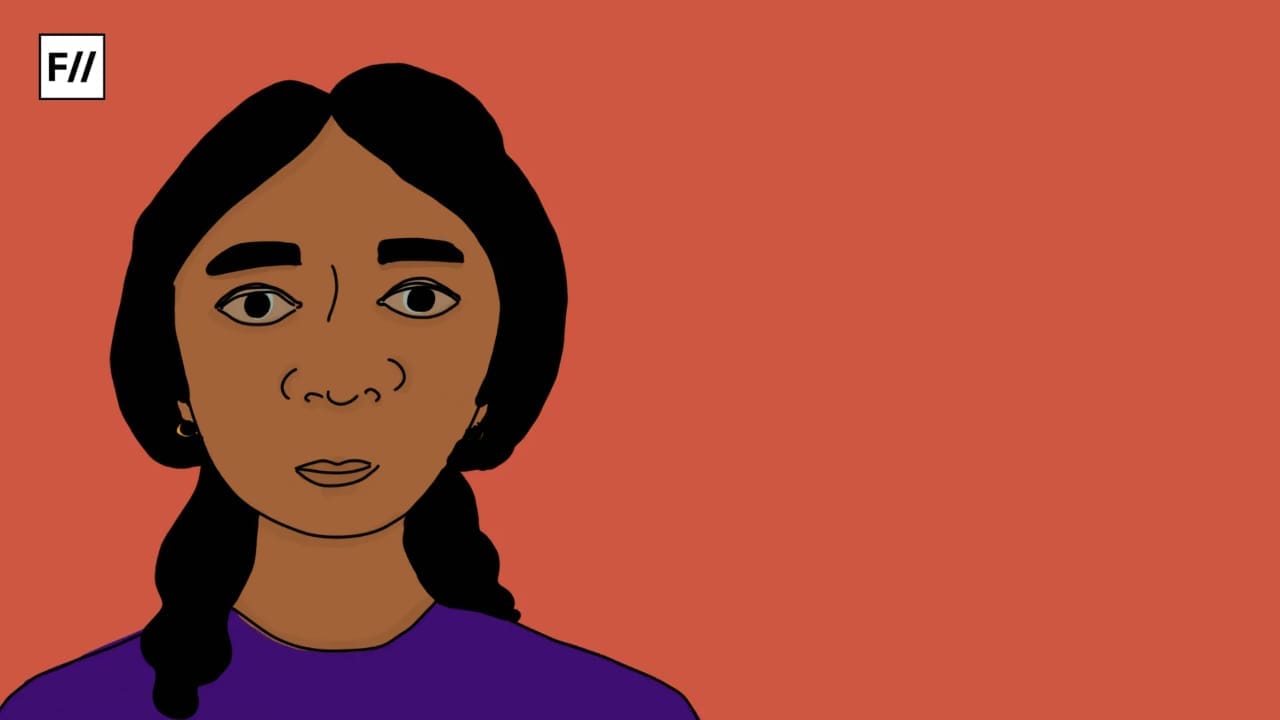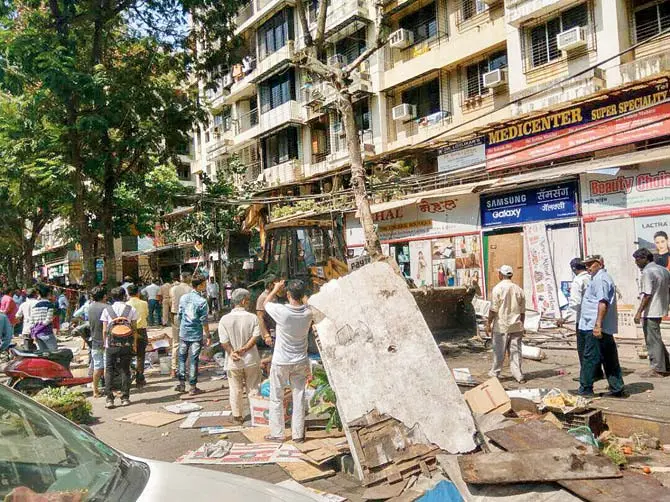In Kashmir, female MCs are boldly challenging the male-dominated hip-hop scene and ushering in a new era of self-expression and empowerment through rap music. In a society where gender norms often dictate women’s roles, these talented artists are breaking free from discrimination and societal expectations.
While traditional musical forms have long been a part of Kashmiri women’s cultural repertoire, the emergence of rap represents a recent and powerful medium for breaking free from gender-based discrimination and stereotypes.
Fusion of tradition and global influences
Kashmir, with its rich cultural heritage, has always been a melting pot of diverse influences. The advent of hip-hop in this picturesque valley can be traced back to the global spread of this genre. As hip-hop gained prominence worldwide, it found its way into the hearts of Kashmiri youth, who identified with its themes of resistance, expression, and authenticity.
The themes of social issues, conflict, and identity, central to Kashmiri life, seamlessly blended with the ethos of hip-hop.
The local youth, inspired by international hip-hop icons, began experimenting with this genre in the early 2000s. They infused traditional Kashmiri elements into the beats and rhymes, creating a unique fusion that resonated with the local audience. The themes of social issues, conflict, and identity, central to Kashmiri life, seamlessly blended with the ethos of hip-hop.
An underground hip-hop movement started taking shape, providing a platform for young artists to express their thoughts and emotions. The emergence of male rappers marked the initial phase of this musical revolution. They rapped about the struggles and aspirations of Kashmiri youth, using their lyrics to voice dissent and speak truth to power.
Challenges and triumphs
The entry of female MCs into this scene marked a transformative moment. Anam Nasir, Mehak Ashraf, and Iqra Nisar are among the pioneers who defied gender stereotypes, adding a new dimension to Kashmir’s hip-hop culture. Their emergence challenged the notion that rap was exclusive to men, breaking barriers and inspiring a new generation of female artists.
These fearless women not only embraced hip-hop but also incorporated their unique Kashmiri identity into their lyrics. They rap about the beauty of their homeland, the struggles faced by women, and the societal constraints they aim to shatter. The fusion of global hip-hop influences with local Kashmiri elements has given rise to a distinctive sound that speaks directly to the hearts of the people.
As these female MCs continue to make waves, their journey reflects the broader narrative of hip-hop in Kashmir. It’s a movement that began as a cultural import but evolved into a powerful tool for self-expression and empowerment.
The beats and rhymes that reverberate through the valleys of Kashmir are now a testament to resilience, breaking chains, and creating a space where voices, especially those of women, can be heard loud and clear.
At the forefront of this movement is Anam Nasir, widely recognised by her stage name, Rapper Annie. Anam embarked on her journey into the world of rap at the tender age of 17, propelled by a desire to use her voice to challenge societal norms. Influenced by hip-hop icons such as Raftaar, she composed her inaugural song, “Last Ride,” as a poignant tribute to a friend lost in a tragic accident.
For Anam, the challenge wasn’t just mastering the art of rapping but also facing criticisms and negative comments on social media. Anam reflects, ‘If we talk about rapping, it is difficult for a girl in Kashmir. You should have the support of your family, no matter what, then you can handle anything.’
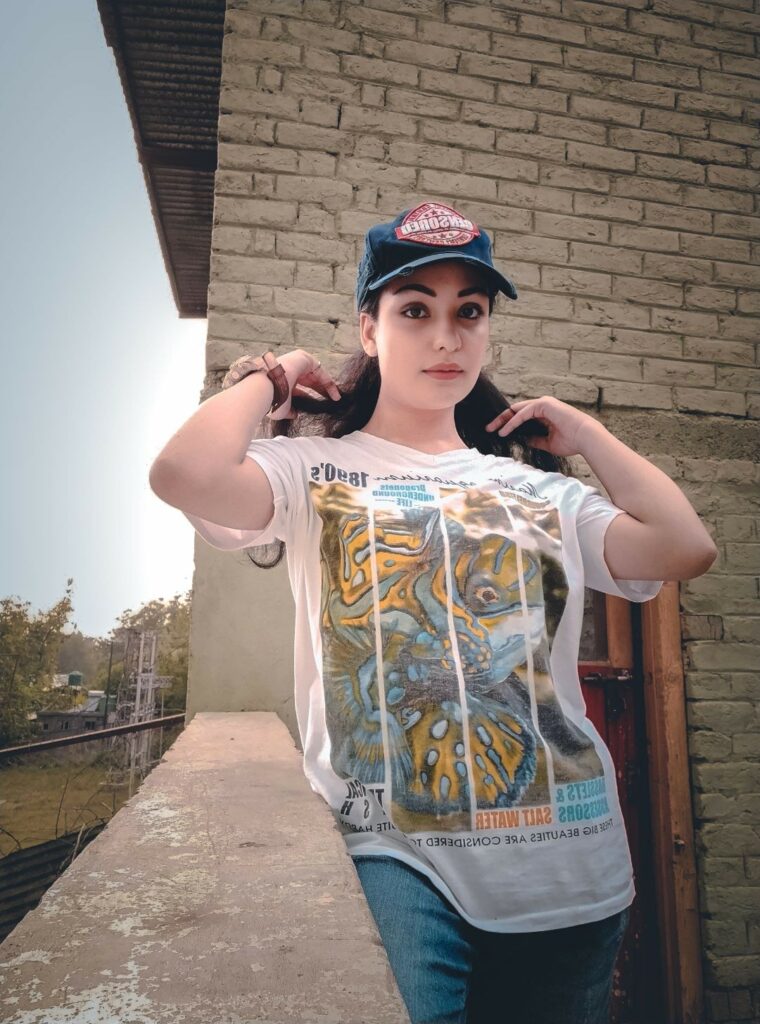
Overcoming scepticism and societal norms, Anam found a pillar of support in an unexpected ally – her father. Initially unconvinced that rap was a viable option for girls in Kashmir. She recounts, ‘My dad listened attentively and committed to supporting me once he recognised my deep passion for the genre.” Presently, her father accompanies her to various places, from studio sessions to casual meet-ups with fellow rappers, illustrating a significant transformation in familial support.
Anam’s path is marked by challenges. In a predominantly male-driven domain, she encounters opposition from male rappers who perceive a threat to the rising popularity of their female counterparts. Anam articulates, ‘Primarily, women connect with the lyrics written by female hip-hop artists, and only a few rappers who genuinely grasp and value talent extend their support. Others are resistant to our progress in the hip-hop field.’
Despite these hurdles, Anam remains undeterred in her pursuit of becoming a high-profile female hip-hop artist. She emphasises the importance of support from family and encourages aspiring female rappers to motivate their parents, recognising the pivotal role parental support plays in navigating the challenges of the industry.
Anam Nasir crafts her rap compositions in Kashmiri, Urdu, and English, striving for ongoing improvement both in lyrical expression and rhythmic delivery. Illustrating her resilience, one of her impactful lines reads, “You talk about the heights, I live on mountains. I am self-sufficient and require no advocates.”
Anam is mindful of the societal stigma linked with rap, acknowledging that some artists contribute to an unfavourable image. Nonetheless, she underscores the significance of authenticity and meaningful lyrics, a perspective gradually altering her father’s outlook.
Another significant figure in this burgeoning movement is 22-year-old Mehak Ashraf, known by her stage name Menim. Hailing from the old city of Hazratbal in Srinagar, Mehak’s journey into rap began at the age of 12, sparked by the influential music of Eminem. She reminisces, ‘At 12, I encountered Eminem’s songs and began learning from his vocabulary, cadence, and rapping style. That marked the beginning of my journey into rapping.’
Carrying a fiery attitude and unwavering confidence, Menim sees her role not only as an artist but also as a contributor to societal change, particularly in the conservative environment of Kashmir. Her rap music serves as a means of challenging stereotypes and empowering other girls who may feel constrained in a male-dominated society.
However, Menim faced resistance at home and from the prevailing mindset of the people around her. When she first shared her aspirations with her parents, they expressed concerns about the challenges a female rapper might encounter in a place where male artists struggled to find platforms. ‘What prospects will you have as a girl here when male artists struggle to find recognition? You’ll likely face negative comments and backlash,’ her parents cautioned.
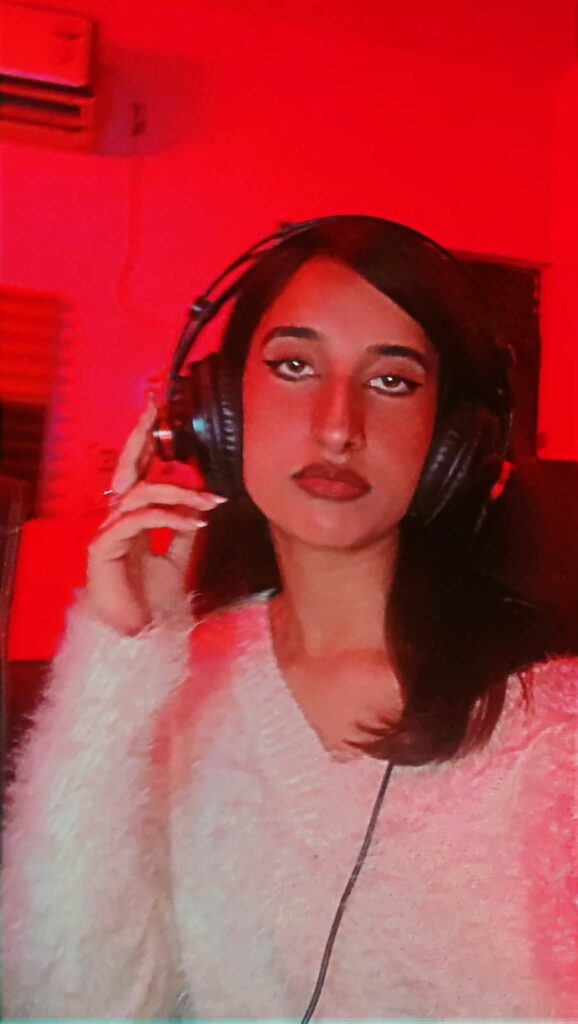
Despite initial resistance at home and outside, Mehak’s determination prevailed. She found solace in knowing that her rap music could inspire and instil confidence in others facing challenges due to societal expectations. Today, she takes pride in challenging stereotypes through her art and encourages others to embrace their talent, have faith in themselves, and pursue their dreams unapologetically. For Menim, rap is not just a form of artistic expression but a powerful tool for societal transformation.
Iqra Nisar, also known as Yung Illa, adds another layer to the rising movement of female rappers in Kashmir. A ninth-grade student from Baramulla in North Kashmir, Iqra discovered her passion for rap at the age of 8. Initially keeping her involvement in the rap world a secret from her family, Iqra began writing rap lyrics after learning more about the genre from boys who helped her understand its nuances.
Despite facing strong opposition from her father when her involvement in the rap world was discovered, Iqra persevered. Her father’s perspective shifted when he listened to her first recorded rap, allowing her to continue pursuing her musical passion. Drawing inspiration from artists like Talha Anjum, Iqra’s lyrics often touch upon women-related issues, social crimes, and the pursuit of freedom, reflecting the unique challenges faced in Kashmir.
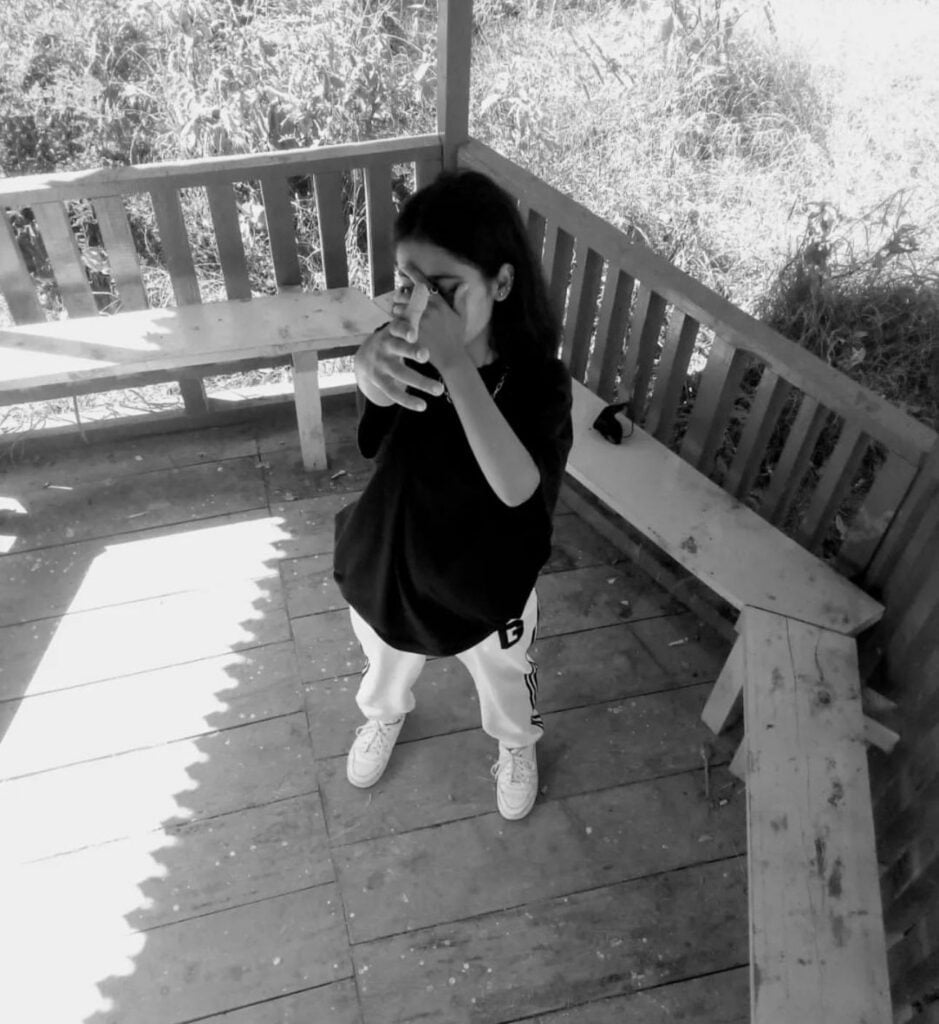
‘Hip hop is an expression of your laughter, anger, and sadness. This culture has no rules. You make your own rules and break them,’ Yung Illa reflected. She acknowledges the misconceptions surrounding the genre but emphasises that, in reality, hip-hop is like any other art form, requiring talent and hard work to master.
Iqra not only records her raps but also shares them on social media platforms, where she has received overwhelmingly positive responses, especially from girls aspiring to showcase their talents. Her music has become a source of inspiration, motivating others to break down barriers and pursue their passions despite familial constraints.
Cultivating a female hip-hop scene
The emergence of these Kashmiri female rappers signifies a transformative shift in the region’s hip-hop landscape. As they challenge stereotypes and societal norms, these artists are not merely creating music; they are forging a path of empowerment and resilience for generations to come.
Mehak emphasises, ‘My rap music provides inspiration and a sense of confidence to those who face challenges due to societal expectations.’ Both Mehak and Iqra encourage others to embrace their talent, have faith in themselves, and persist in pursuing their dreams. They are not just breaking through gender norms; they are cultivating a space for healthy battles and skill enhancement among female rappers.
Iqra envisions, ‘I want more females to come so that we can do battles and make our community stronger. Like boys do battles, I want to create the same culture among girls.’
In the conservative environment of Kashmir, these women are turning their passion into a powerful force for change, one rhyme at a time. As they continue to navigate challenges, these Kashmiri female rappers are creating not just a musical movement but a cultural transformation, dismantling barriers and reshaping perceptions.
